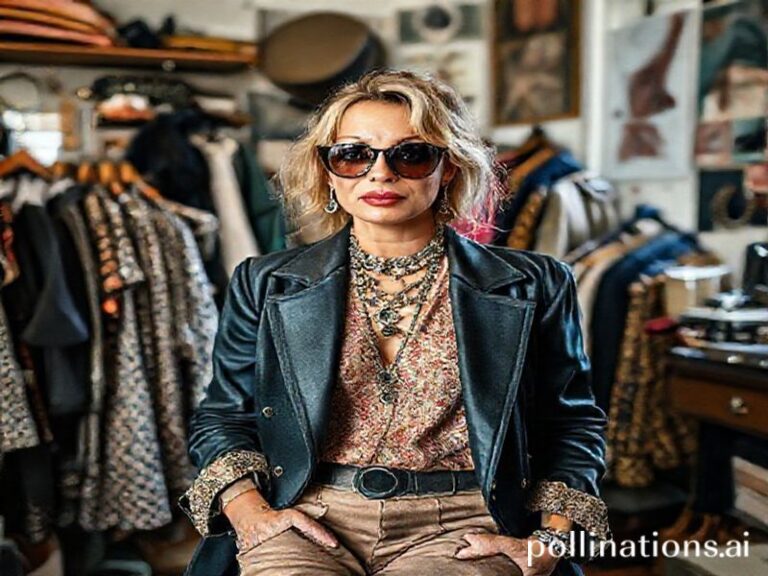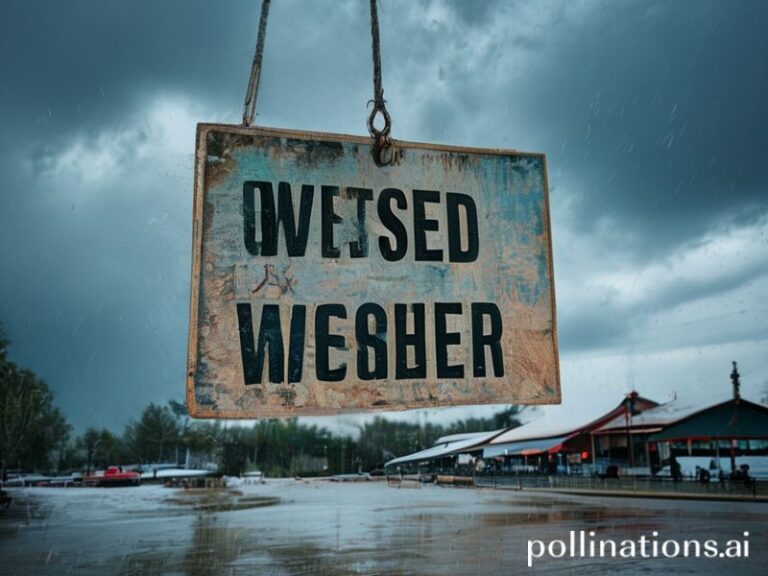Chicken Shop Diplomacy: How Amelia Dimoldenberg Accidentally Became Soft Power in a Deep-Fried World
Chicken Shop Diplomacy: How Amelia Dimoldenberg Accidentally Became Soft Power in a Deep-Fried World
By Dave’s Locker Foreign Desk
LONDON—In the grand, gilded tradition of British exports—colonialism, the Beatles, and whatever Boris Johnson is—comes Amelia Dimoldenberg, a 30-year-old journalist armed only with a microphone, a deadpan stare, and the caloric equivalent of a NATO stockpile. Her YouTube series “Chicken Shop Date” is nominally about fried poultry and awkward flirtation, yet diplomats from five continents quietly concede it has done more for transatlantic relations than most climate accords. When American rappers, Korean pop idols, and French footballers queue up to be gently humiliated over wings in a North London strip-mall, you realize soft power now comes with a side of coleslaw.
Let’s zoom out. While the World Bank issues stern PDFs on global inequality, Dimoldenberg is busy translating it into bite-size nuggets: Drake looking genuinely nervous, or Jungkook discovering that British “banter” is indistinguishable from low-grade hostility. The show’s genius is its refusal to acknowledge hierarchy. A Louis Vuitton ambassador still has to wipe grease on a napkin that disintegrates faster than post-Brexit trade deals. In a media landscape drowning in polished PR, watching multimillionaires confront their own mortality via spicy wings is the closest we get to class warfare.
Naturally, governments have noticed. The UK’s Department for International Trade reportedly keeps a “CSD Index” measuring spikes in tourism after episodes featuring stars from target markets. When Bad Bunny appeared, Puerto Rican hotel searches rose 18 percent; when Nigerian singer Burna Boy dropped by, British High Commission staff in Lagos received so many visa inquiries they briefly mistook it for a coup. The Foreign Office denies any formal involvement, but sources whisper that an attaché once couriered peri-peri sauce to the set “for continuity.” If that isn’t propaganda, neither was the Bay of Pigs.
Across the Channel, Macron’s cultural strategists seethe. France invented existentialism, yet a woman with wing sauce on her blazer just outmaneuvered them in the global attention economy. Meanwhile, China’s TikTok sibling Douyin has launched “Hotpot Hangout,” a shameless clone starring a host who looks suspiciously like Amelia’s long-lost communist cousin. It lasted three episodes before censors pulled it for “promoting decadent Western poultry.” Somewhere in Beijing, a propaganda intern is drafting a self-criticism titled “Why Did We Not Weaponize Fried Food First?”
The darker joke, of course, is that Chicken Shop Date flourishes precisely because everything else is on fire. Climate refugees shuffle, crypto empires collapse, and the Doomsday Clock enjoys its new career as a ceiling fan—yet we still crave 12 minutes of two humans pretending to care about lemon-herb seasoning. It’s Bread and Circuses, except the bread is gluten-free and the circus has Wi-Fi. Scholars call this “liminoid media,” a fancy way of saying we’re all stuck in an airport departure lounge of the soul, eating overpriced tenders while waiting for a flight that keeps getting delayed by war or Wi-Fi outages.
Still, Dimoldenberg’s interrogations—equal parts therapy session and hostage negotiation—extract accidental truths. Ed Sheeran admits chart algorithms terrify him; Maya Jama confesses she Googles her exes’ new girlfriends just like the rest of us. These micro-disclosures are geopolitically trivial yet emotionally seismic; they remind viewers that fame is merely a more expensive form of loneliness. If that realization sells a few extra airline tickets, Downing Street will take the win.
So where does this leave the international order? Simple: in a grease-stained cardboard box labeled “Handle with Care.” Soft power used to mean Shakespeare and the BBC; now it’s a woman asking Jack Harlow if he prefers thighs or breasts while the comment section debates NATO expansion. The world’s most pressing conflicts won’t be solved by chicken, but if we’re all going to fry anyway, we might as well do it over lemon-herb marinade and mild sexual tension.
Conclusion: Amelia Dimoldenberg didn’t set out to become a cultural attaché. She just wanted free wings and awkward silences. Yet in an era when trust in institutions evaporates faster than cooking oil in a deep fryer, her show offers the rarest commodity on earth: unscripted human contact, lightly battered. If that’s not a foreign policy triumph, we’ll have the 12-piece bucket and await the apocalypse.







